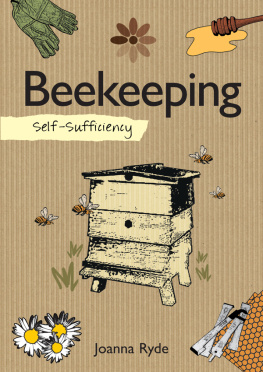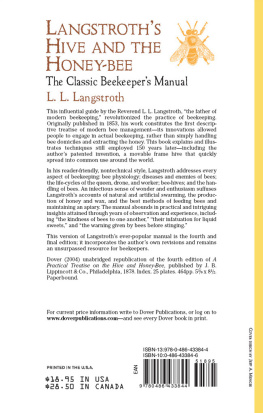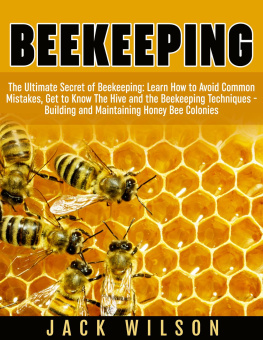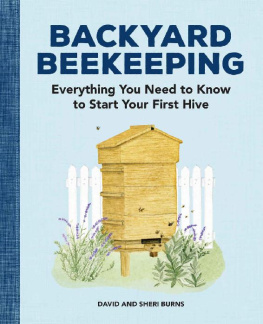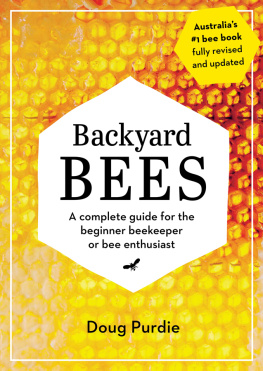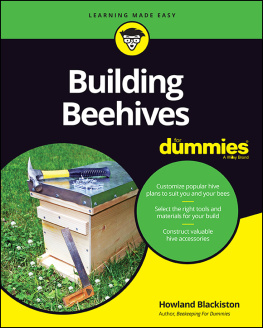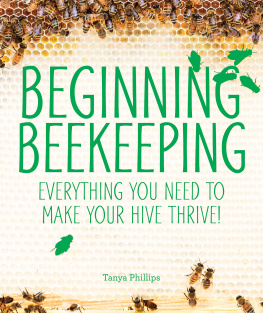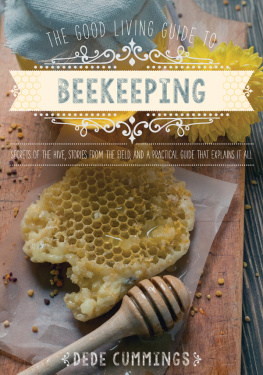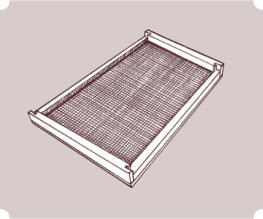Contents
Guide
Self-Sufficiency
Beekeeping


Self-Sufficiency
Beekeeping

Joanna Ryde

Published 2016IMM Lifestyle Books
www.IMMLifestyleBooks.com
IMM Lifestyle Books are distributed in the UK by Grantham Book Service.
In North America, IMM Lifestyle Books are distributed by
Fox Chapel Publishing
1970 Broad Street
East Petersburg, PA 17520
www.FoxChapelPublishing.com
Copyright 2009, 2016 text: Joanna Ryde
Copyright 2009, 2016 artworks: IMM Lifestyle Books
Copyright 2009, 2016 IMM Lifestyle Books
Joanna Ryde has asserted her moral right to be identified as the author of this work.
All rights reserved. No part of this publication may be reproduced, stored in a retrieval system or transmitted in any form or by any means, electronic, mechanical, photocopying, recording or otherwise, without the prior written permission of the publishers and copyright holders.
eISBN 978 1 6076 5253 3
10 9 8 7 6 5 4 3 2 1
Printed in Singapore
Disclaimer
The author and publishers have made every effort to ensure that all information given in this book is safe and accurate, but they cannot accept liability for any resulting injury or loss or damage to either property or person, whether direct or consequential or however arising.
CONTENTS

INTRODUCTION
So, you are thinking of keeping bees. This book will help you to enhance your self-sufficient lifestyle and make beekeeping a reality. Farming and eating your own honey is a pure delight; it is full of goodness and contains unique properties. If you are lucky, there will be lots of honey to sell at local outlets, or give as gifts for family and friends.

Introducing bees into your life and officially becoming a beekeeper is an exhilarating and memorable experience: you are now the owner of a hive and responsible for 60,000 bees!

The new badge of Beekeeper brings, initially, a little apprehension. What have I done? Will the neighbours get stung? Will we ever be able to sit peacefully in the garden again? But dont worry, this rush of anxiety soon subsides and, with a few simple precautions to reduce risk, you will start to relax and enjoy the fascinating and absorbing life of the honey bee close up and prepare for a taste of your very own honey!
Great comfort can be gained in having a mentor. If you are lucky and have a local beekeeper to befriend not only will they be happy to pass on their knowledge, but perhaps some surplus equipment, too. If you are on a budget, then starting with good second hand equipment will ensure welcome savings for you in those early days. It is a good idea to put off buying lots of new equipment until you are sure you want to continue with beekeeping.
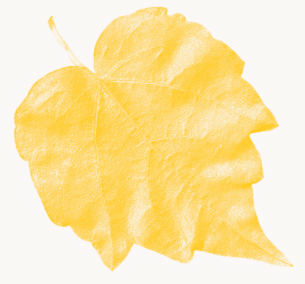
Equally helpful and enjoyable will be going along to your local Beekeepers Association meetings. Many associations also run informal evening classes where you can acquire basic knowledge about the honey bee, together with the skills to become a beekeeper. These classes are often run by local beekeepers, many with decades of experience, who are keen to pass on their knowledge to aspiring beekeepers.
More than anything else, beekeeping is about management, control and learning to understand the honey bee. It can also become a very enjoyable and sociable pastime, visiting others hives and picking up hints and tips.
If you manage your hive well and the weather is kind you will, in a single season, be harvesting the most delicious honey you have ever tasted. It is a stunning and encouraging fact that a well maintained hive with a strong colony can yield 1827 kg (4080 lb) of honey in a season.
In your new role as a beekeeper you will be spending time getting to know your bees, handling frames full of newly drawn honeycomb and, if you are lucky, spying the queen bee amongst the thousands of workers and drones.
What could be more environmentally friendly than keeping bees? You will benefit and so will others as your bees busy themselves with pollination, helping farmers to achieve healthy crops, orchards to increase their yield and local gardeners and allotment holders to grow a good quantity of summer fruits and vegetables.
Beekeeping encompasses so many interests, not least a fuller understanding of the countryside, and a better comprehension of wild and cultivated flowers and plants. You will discover new ideas on health, wellbeing and food and, if inclined, there are a number of skills and craft techniques to learn, to enhance your self-sufficient lifestyle.

Keeping bees

Apiculture, or beekeeping, is the art of keeping bees with the aim of producing and harvesting the honey surplus and its other by-products. It is an ancient technique going back thousands of years.
Getting started
You may have been considering the idea of keeping bees for a long time, encouraged by childhood memories of watching beekeepers attending their hives, or perhaps it is a recent interest encouraged by a local beekeeper with the tempting offer of a hive to get you started. Whatever your level of interest, it is important to do a little homework before bringing home your first hive.
The best way to learn about bees is to read as much as you can and to talk to experienced beekeepers on how they manage their hives. In the beginning, you will probably read and be given some conflicting advice which, when you are starting out with your bees, can be a little bewildering. Nothing beats the confidence gained from experience, however, and after your first year or two so much will suddenly fall into place.
Warning
It may sound obvious, but if you know you have an allergy to bee stings it is unwise to proceed. However careful you are there will be the odd time you get stung during a hive inspection. If any family member or friend suffers from anaphylaxis (an extreme allergic reaction), they should carry an epinephrine syringe with them at all times whilst in the vicinity of an apiary.

